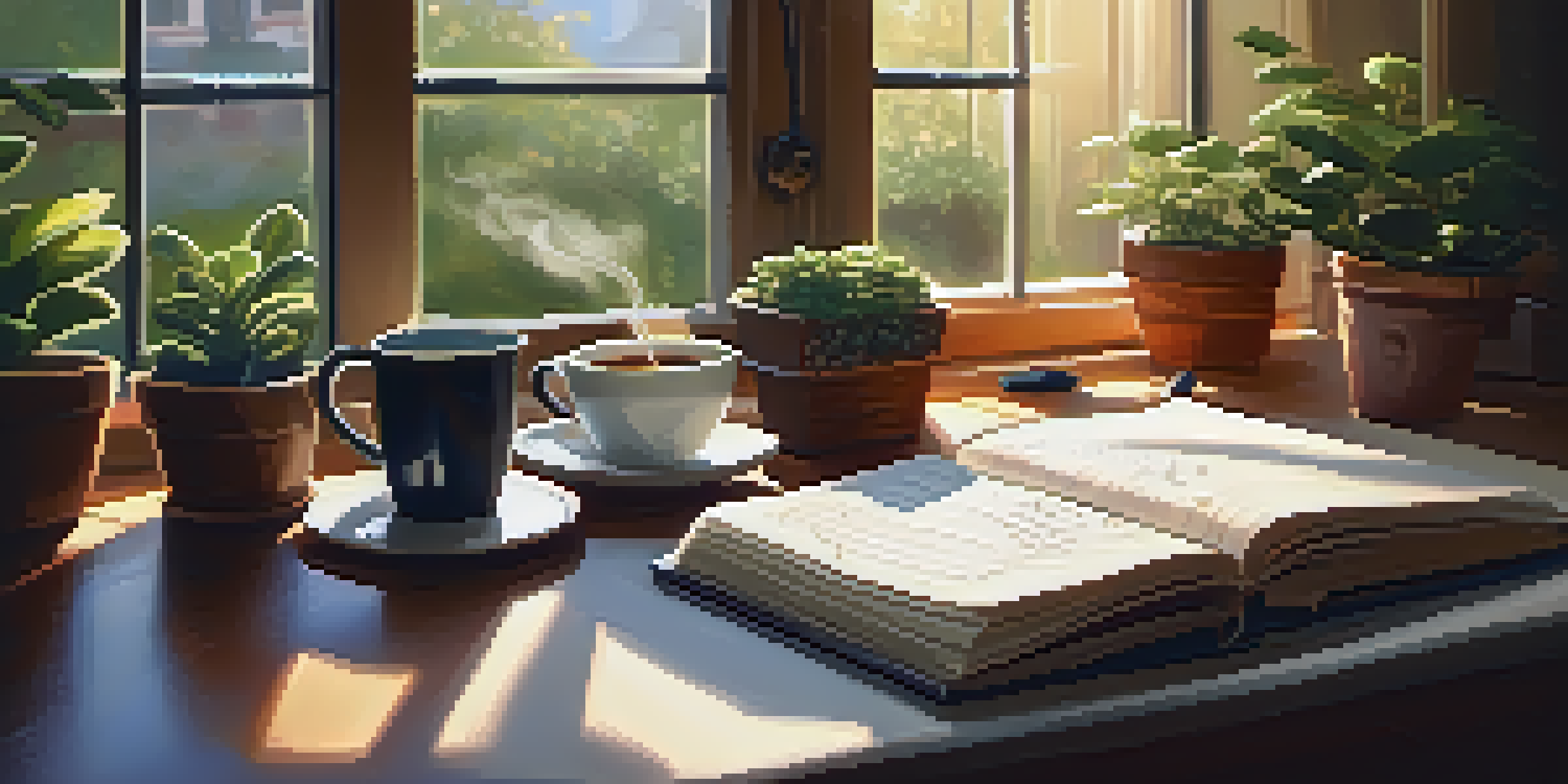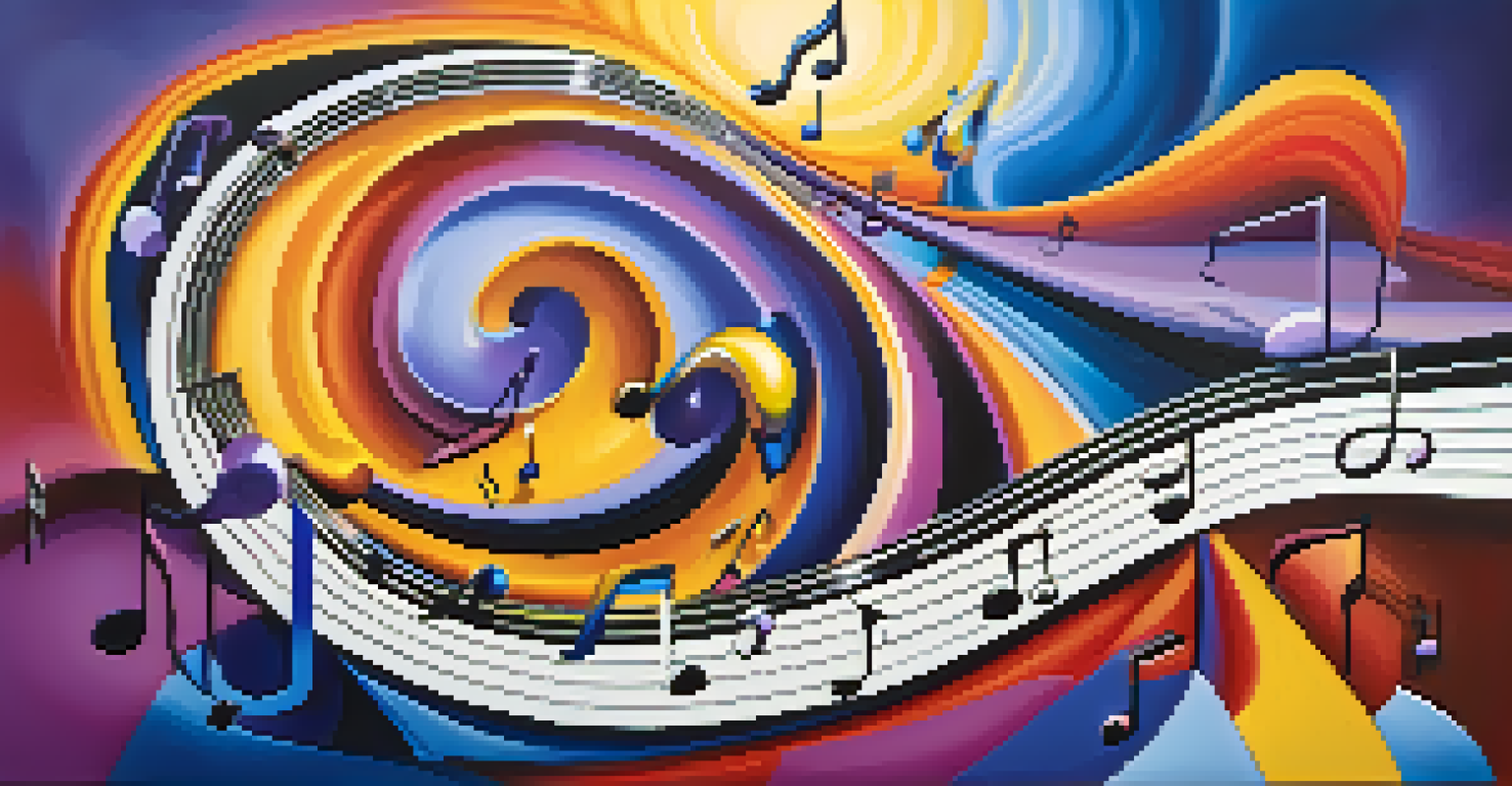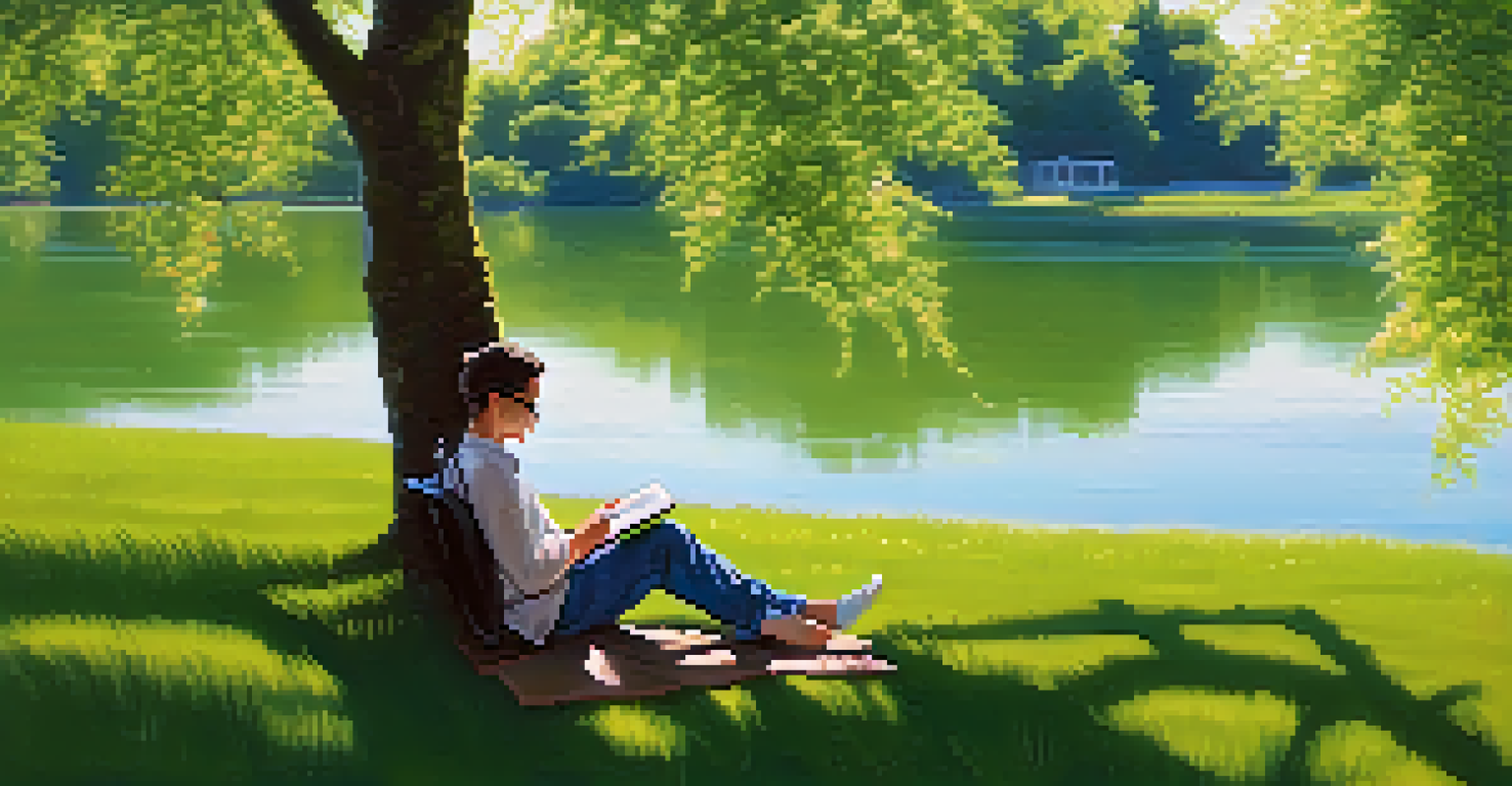The Impact of Music on Creative Writing Sessions

The Connection Between Music and Creativity
Music has an undeniable power to evoke emotions and stimulate the mind. When it comes to creative writing, this connection can be particularly beneficial. Writers often find that certain tunes can ignite inspiration and help ideas flow more freely, creating a conducive atmosphere for crafting stories.
Music can change the world because it can change people.
For instance, a writer might listen to an upbeat playlist when working on a lively scene, while a somber melody could enhance the mood for a more serious narrative. This tailoring of music to fit the writing task can significantly affect the overall creative output. Essentially, music becomes a tool that writers can use to shape their emotional landscape.
Moreover, the rhythm and structure of music can mirror the pacing of writing, enhancing the overall experience. Just as a well-composed piece of music can take you on a journey, so too can a well-written story, and music serves as a guide along that path.
Genres That Fuel the Creative Fire
Different music genres can evoke distinct emotional responses, making them suitable for various writing projects. For example, classical music often provides a calming backdrop, encouraging deep focus and contemplation. On the other hand, rock or pop music might energize a writer, inspiring faster-paced narratives filled with action.

Consider the impact of instrumental music, which eliminates lyrical distractions and allows the mind to wander freely. Many writers find that soundtracks from films can evoke vivid imagery and inspire complex characters or plots. The choice of genre can thus be crucial in determining the tone and direction of the writing process.
Music Sparks Creative Writing
Writers can enhance their creativity and emotional expression by using music tailored to fit their writing tasks.
As you explore various musical styles, keep track of which ones resonate most with your writing. This exploration not only personalizes your creative sessions but also helps you discover new sounds that might elevate your storytelling.
Creating a Writing Playlist
Crafting a dedicated writing playlist can be a game changer for many authors. This collection of songs, tailored to enhance focus and creativity, acts as a familiar backdrop during writing sessions. By curating a selection of tracks that inspire, you set the stage for your imagination to run wild.
Writing is an exploration. You start from nothing and learn as you go.
Start by identifying the emotions you wish to evoke in your writing. Do you need a sense of urgency? Look for faster tempos. Want to create a serene atmosphere? Choose softer melodies. Over time, your playlist will evolve, reflecting your unique style and preferences.
It’s also helpful to keep your playlist fresh. Regularly updating it can prevent monotony and keep your creative juices flowing. The anticipation of new songs can even spark new ideas, making the writing process feel exciting and dynamic.
Music as a Tool for Overcoming Writer's Block
Writer's block is a common hurdle that many authors face, often leaving them staring at a blank page. Music can serve as a powerful antidote to this creative stagnation. By shifting your mindset through melodies, you can break free from the confines of that mental block.
Listening to invigorating or uplifting music can help reset your mood and encourage a fresh perspective. For instance, a writer feeling uninspired might switch to an upbeat track, encouraging them to take a more playful approach to their work. This change in energy can ignite new ideas that were previously dormant.
Curate a Writing Playlist
Creating a dedicated playlist of inspiring tracks can significantly improve focus and help set the mood for writing.
Additionally, the act of simply engaging with music—whether through listening or even playing an instrument—can stimulate different areas of the brain. This stimulation can lead to unexpected insights and bursts of creativity, allowing the writer to flow into their work with renewed vigor.
The Role of Lyrics in Writing Sessions
While many writers prefer instrumental music for its unobtrusive nature, lyrics can also play a fascinating role in the creative process. Lyrics can resonate deeply, inspiring writers to explore themes and emotions in their own work. However, the key is to find the right balance between inspiration and distraction.
For some, singing along to a favorite song can unleash a wave of creativity, while for others, it might lead to a loss of focus. It’s essential to know your limits and understand when lyrics might enhance or hinder your writing sessions. Experimenting with both can help you find your sweet spot.
Consider keeping a separate playlist for lyrical songs that you can turn to when you're looking for thematic inspiration. This way, you can enjoy the benefits of both instrumental and lyrical music, using each strategically depending on your writing needs.
The Science Behind Music and Writing
Numerous studies suggest that music can significantly influence cognitive functions, including creativity. Research indicates that background music can enhance focus and improve overall productivity. This supportive environment can be particularly beneficial during creative writing sessions.
Moreover, music activates the brain's reward system, releasing dopamine and creating a sense of pleasure. This positive reinforcement can motivate writers to engage more deeply with their work, fostering a more enjoyable writing experience. Such findings highlight the profound impact that music can have on both the emotional and cognitive aspects of writing.
Music Alleviates Writer's Block
Listening to music can serve as an effective remedy for writer's block, helping to shift mindset and ignite new ideas.
Understanding these scientific insights can empower writers to harness music more effectively in their creative practice. By recognizing how music affects your brain, you can better tailor your writing sessions to maximize creativity and output.
Integrating Music into Your Writing Routine
To truly leverage the benefits of music in your writing, it’s important to integrate it into your routine. This might mean setting aside specific times for writing while listening to your curated playlists. Consistency can help reinforce the positive associations between music and creativity.
Consider creating a ritual around your writing sessions. For example, you might start each session with a particular song that signals the beginning of your creative time. This can help signal your brain that it’s time to shift into writing mode, enhancing focus and creativity.

As you develop this routine, pay attention to how different music affects your writing outcomes. Over time, you’ll cultivate a unique process that combines your musical preferences with your writing style, leading to a more fulfilling creative journey.